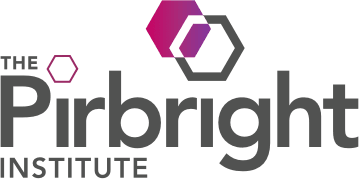Interferon-gamma induction correlates with protection by DNA vaccine expressing E2 glycoprotein against classical swine fever virus infection in domestic pigs
Classical swine fever (CSF) is a highly contagious viral infection affecting domestic and wild pigs. For classical swine fever virus (CSFV), immunization with plasmids expressing different versions of glycoprotein E2 has proven an effective way to induce protection. Previously, we have also shown that immunization with DNA vaccine expressing glycoprotein E2 (DNA-E2) induced specific T helper cell responses in the absence of neutralizing antibodies. However, the role of T cell responses in protection against CSFV is largely unknown. Here we have extended these studies to deeply characterize the role of T cell responses by a DNA-E2 and their correlation with protection against CSFV infection. Thus, pigs vaccinated with the DNA vaccine induced a strong cellular immune response, characterized by the specific induction IFN-gamma expressing T cells after vaccination without any detectable levels of CSFV neutralizing antibodies. Constant levels of CSFV-specific IFN-gamma producing cells observed from the beginning of the infection until 7 days after challenge in vaccinated animals might contribute to early control of CSFV replication, at least until neutralizing antibodies are developed. Severe clinical signs of the disease, including high titers of viremia, pyrexia and virus spread to different organs, were recorded in the non-vaccinated challenged animals, in comparison to the vaccinated animals where only one animal showed mild clinical signs and a short peak of viremia. Lack of complete protection in this animal correlated with a delay on the induction of neutralizing antibodies, detectable only from day 11 post-CSFV challenge. Conversely, the rest of the pigs within the group developed neutralizing antibodies as early as at day two post-challenge, correlating with sterile protection. Finally, an inverse correlation seemed to exist between early induction of IFN-alpha and the protection observed, while IL-10 seemed to be differentially regulated in vaccinated and non-vaccinated animals. Our results support the relevance of the induction of a strong T cellular response to confer a solid protection upon DNA vaccination against CSFV. Further experiments are needed to be done in order to clarify the key cytokines playing a role in CSFV-protection and to obtain emergency vaccines capable to confer robust and fast protection.
